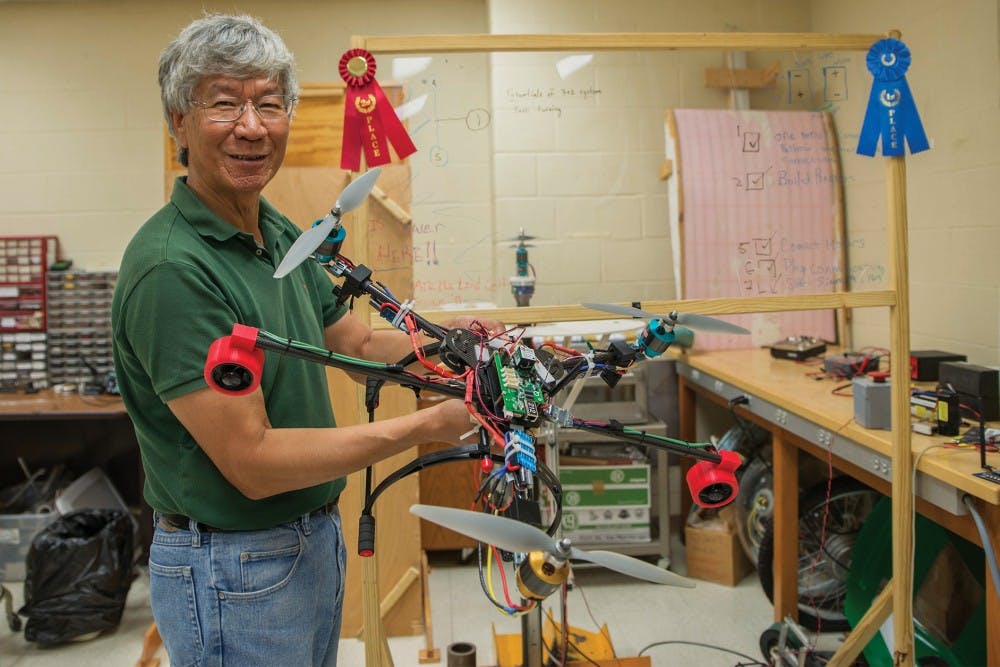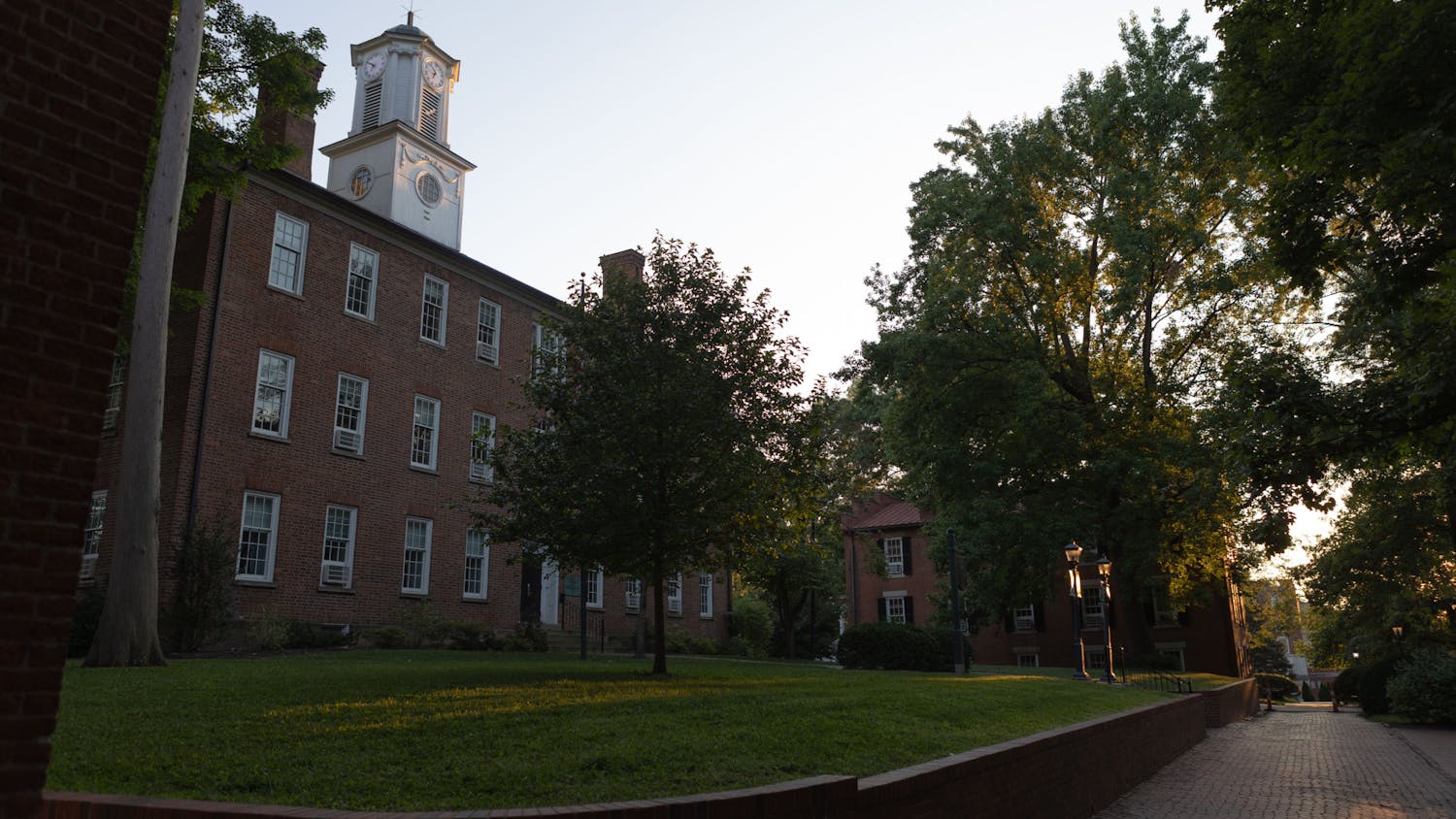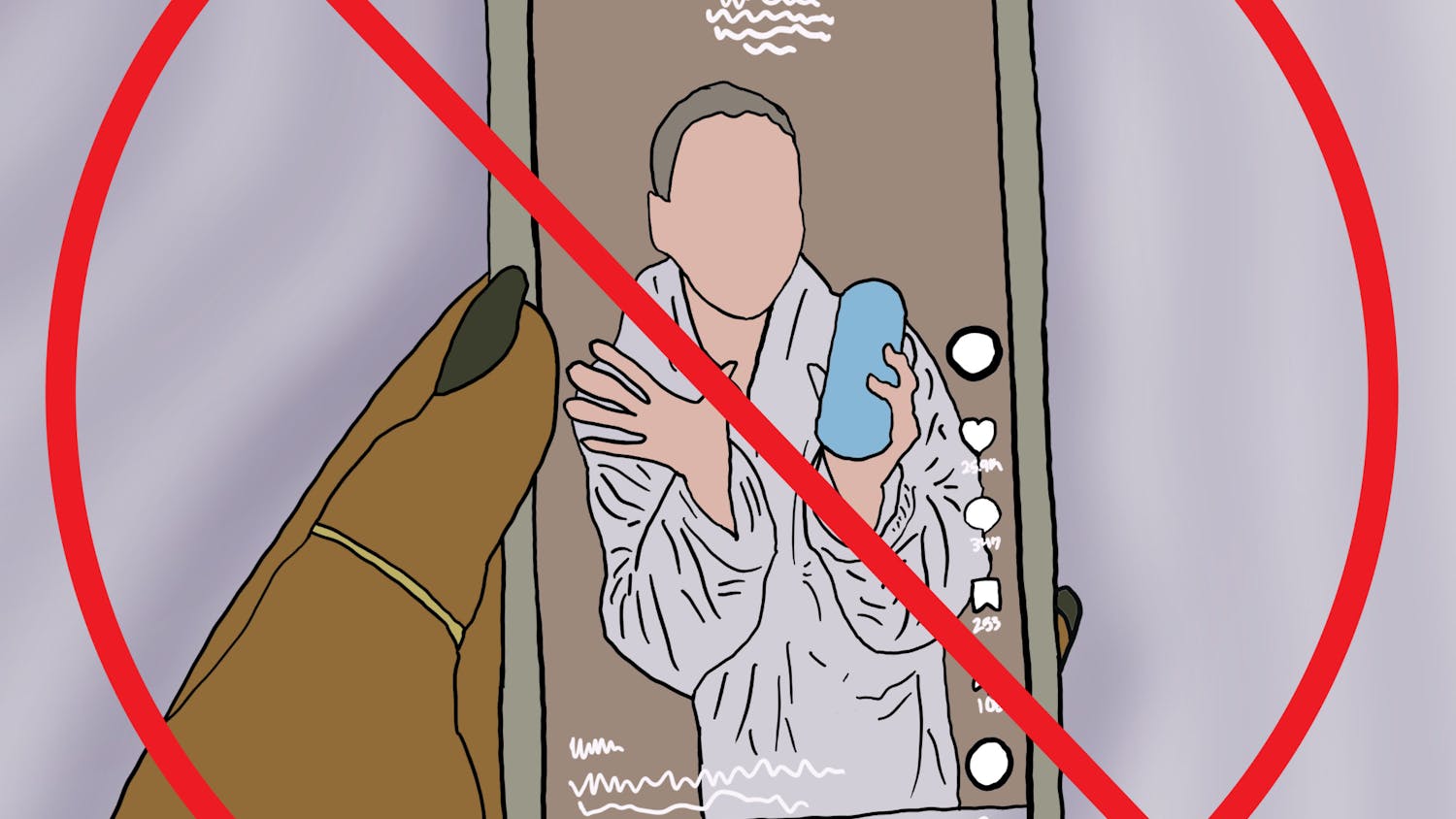Professor Jim Zhu’s office in Stocker Center is crammed with materials from projects new and old. Long equations fill a whiteboard on one wall. On another are photographs of a space shuttle in flight — a reminder of his time working for NASA.
On his desk, between stacks of paper, are a couple of model cars and airplanes. They were gifts from his two children long ago, and serve as a reminder of the project that has consumed him for over a decade: fusing the two vehicles together to create a flying car.
“There is a real need for something like this,” Zhu said. “It can lead to an improved quality of life, it can make getting around easier. And it’s also a good way to motivate students because it’s fun and challenging.”
Zhu said the concept of a flying car is an old one. Henry Ford made an attempt as early as 1928. Zhu has a book containing every flying car design patented up to the '90s, which is when he first attempted to build a flying car with his students at Louisiana State University. His first prototype, the size of a remote control car, took flight in 2004.
Since then, Zhu and his students at Ohio University have made progress. He and one of his students are currently using a remote control car to test technology for a self-driving car. He is also working to develop an autonomous plane. The ultimate goal is to fuse the two autonomous vehicles together to create a flying car that wouldn’t need a pilot.
Zhu also wants the car to be able to take off vertically, which would be more convenient for the driver, though it is a tall order for the students working under him. The current design of the car has the wheel arranged in a diamond pattern — Zhu said that would make landing easier — and four fans in each corner of the car for takeoff. There are also two fans facing backward to propel the vehicle forward in flight, and small wings fold down from the rear of the car. Zhu patented a design for a flying car and created a 3-D model, but the car primarily exists only in theory.
“It’s difficult because we have to develop the technology as we go along,” Zhu said.
Zhu first became interested in flight as a fourth-grade student in Beijing, when he read a book from the Soviet Union about making paper airplanes. A few years later, in 1966, the government launched the Cultural Revolution to remove capitalist ideals from Chinese society. The schools were shut down for several years.
Disillusioned with the political structure of the country, Zhu went to work in a gear factory at the age of 16. He became the factory’s floor manager by age 17.
“At the factory I learned much of my technical knowledge and skills,” Zhu said.
Zhu's curiosity helped him to learn without schooling. On his walks home from the factory, Zhu and his friends would pass a technological institute and sift through the institute’s trash for electronic parts to build transistor radios.
In the early '70s, the schools began to reopen, and at 21, Zhu went to Beijing Polytechnic University for industrial engineering, where he worked on industrial saws and other projects.
He left China in the early '80s to study control engineering at the University of Alabama in Huntsville, and taught at LSU for a decade before coming to Ohio University in Fall 2000.
The flying car has preoccupied much of Zhu’s time since arriving in Athens, but he has worked on other projects. In 2001 he worked with NASA to help develop a second-generation space shuttle. When that program was canceled, Zhu’s team at OU switched to airplane flight control. Zhu recently patented a system that would prevent a pilot from losing control of a plane experiencing turbulence. Zhu plans to use that technology in the flying car.
“He’s been very active in developing control systems, which require some very deep mathematics,” said Dr. David Juedes, the department chair for electrical engineering and computer science at the Russ College. “I have a lot of respect for his work.”
Amy Chan, a graduate student from China studying electrical engineering, said she plans to use the self-driving car to earn her Ph.D.
“I found his area of research very interesting to me,” she said.
Although the flying car might be far off, self-driving cars are already on the horizon, if not closer. The ride-share company Uber recently announced it would test a fleet of self-driving cars this month. Chan recently ran a successful test with the RC car.
“Getting to work on things that are new or challenging, that is very gratifying to me,” Miguel Sempertegui, a graduate student studying electrical engineering also working under Zhu, said. “He is a demanding professor, but I think he’s fair.”






